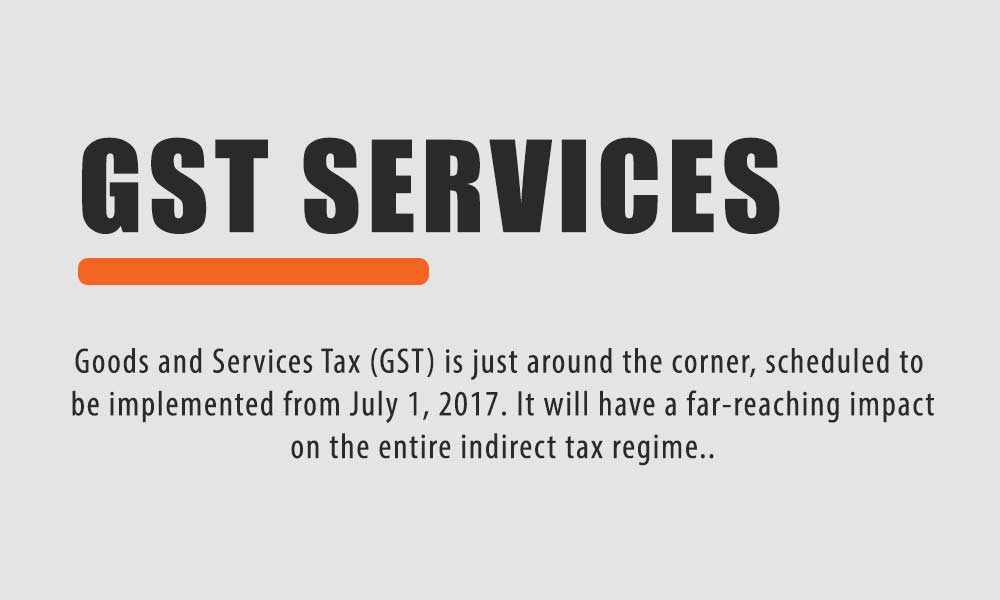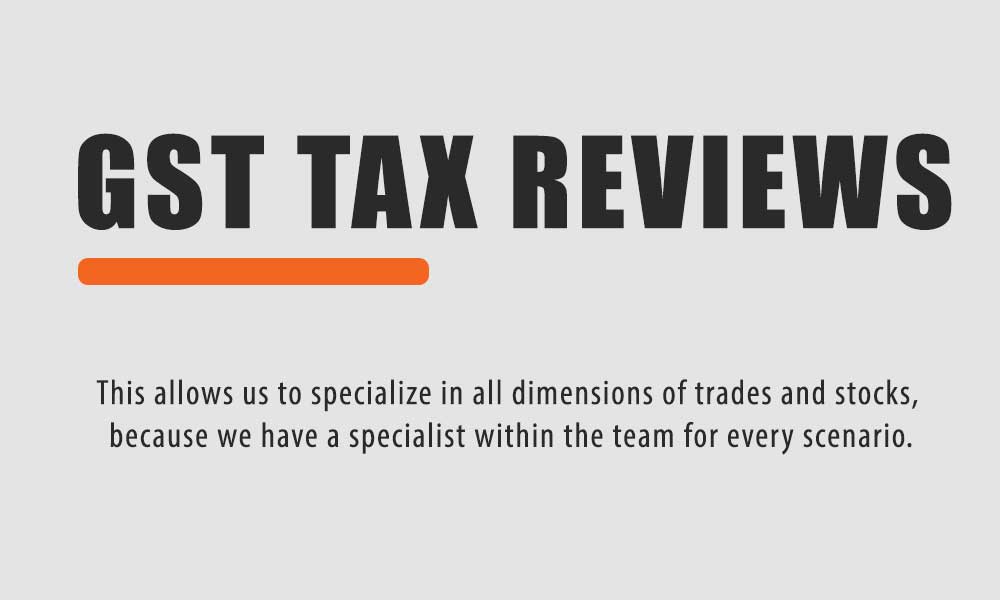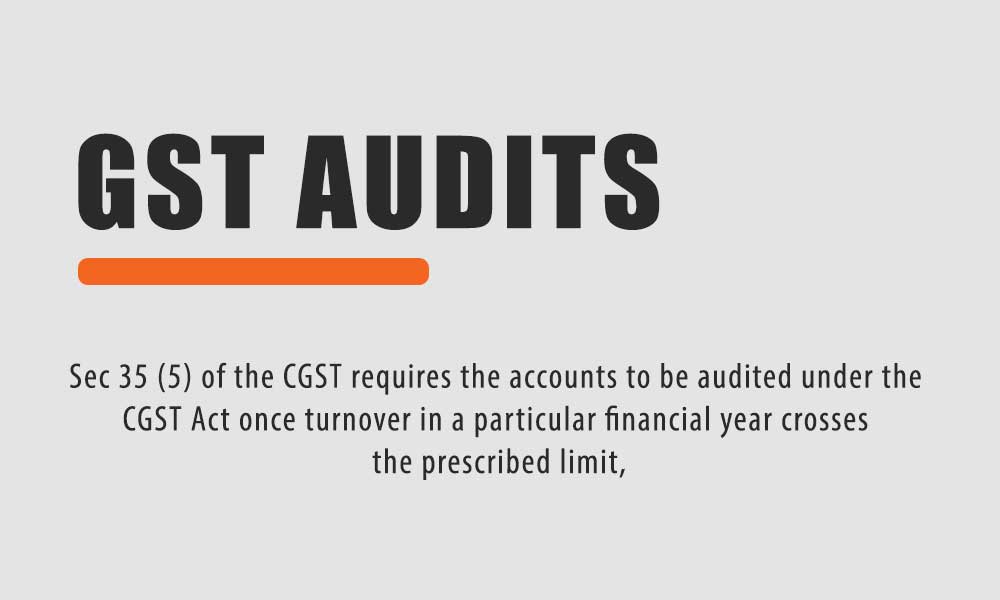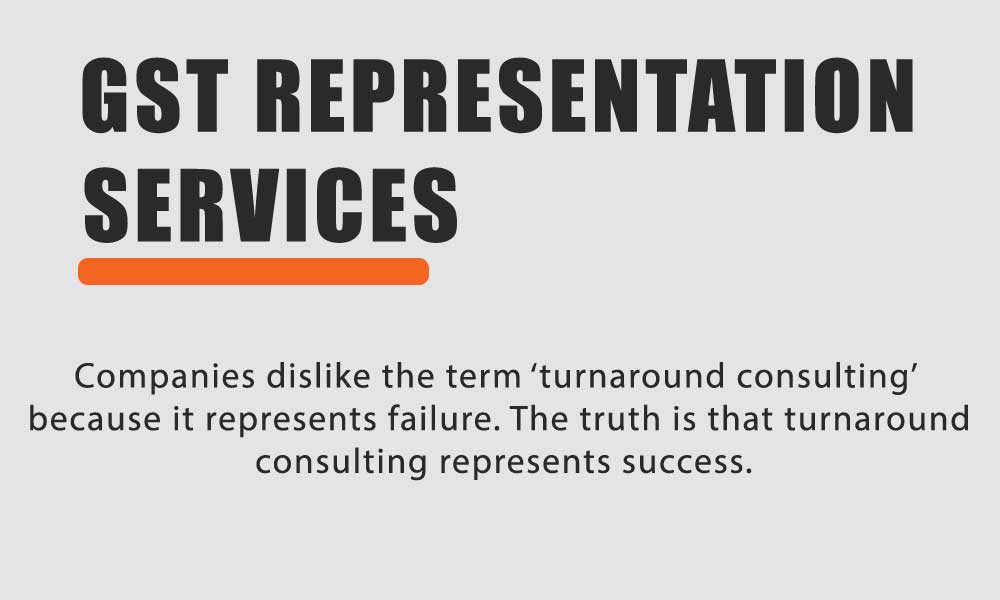
Background
Presently there are many indirect taxes such as Central Excise, Service tax, VAT, CST, Entry tax being levied in India at central and state level. GST is expected to simplify and harmonize the indirect tax regime in the country. This would lead to reduced cost of production and inflation in the economy, thereby making the Indian trade and industry more competitive, domestically as well as internationally. The introduction of GST in 2017 seems to be a certainty now. In this backdrop brief overview of GST is given in this article.
Levy of GST
GST is a destination based indirect tax regime. There would be dual GST model in India. GST would be levied on supply of goods and services. Centre, State or Union Territories would levy and collect CGST,SGST and UTGST respectively. Further, the Centre would levy and collect the Integrated Goods and Services Tax (IGST) on all inter-State supply of goods and or services.
What is excluded from GST?
Presently petroleum crude, high speed diesel, petrol, natural gas and ATF are kept out. GST would be levied on such supplies with effect from such date notified by the Govt on recommendation of Council. Alcohol for human consumption, electricity is also out of levy at present.
Concept of Supply
GST is levied on a supply of goods or service. Supply has very wide meaning to cover all forms of supply such as supply of goods and/or services such as sale, transfer, barter, exchange, license, rental, lease, or disposal made for consideration by a person in the course of business, importation of service, whether or not in course of business. Further in specified cases, supply without consideration would be treated as a supply.
Composition Scheme
The registered taxable person who has an aggregate turnover in preceding financial year not exceeding Rs. 50 Lakhs may opt to pay composition tax calculated at the prescribed rate, instead of the regular rate of tax. The rate is expected to be
- 1% of turnover in State / UT for manufacturer
- 2 ½ % of turnover in State / UT for hotel
- ½% of turnover for other suppliers in State / UT
Basic exemption limit
It is Rs. 20 Lakhs pa aggregate turnover limit on all India basis. Limit is Rs. 10 Lakhs pa in special category states including the NE states.
Exemption from tax
The reverse charge mechanism would be applicable to a registered person in respect of taxable supplies of goods and or services made by an unregistered person.
In addition, in respect of the specified list of goods and or services, as notified by Govt on a recommendation of Council, the recipient would be liable to pay tax.
A similar provision is there under IGST law.
An eligible credit of tax paid would be available to such receivers.
Tax Rate
Tax rates for various categories of goods would be nil, 5%, 12%, 18% and 28% with rate on sin goods such as soft drinks at 40%. The specific rates for various kinds of goods are not known at present. Rate of tax on services expected to be 18%. It is not known whether abatement schemes would continue.
Time of Supply
Time of supply in case of goods is earliest of date of invoice or last date by when invoice required to be raised or date of receipt of payment.
In case of services, time of supply is
Earliest of date of invoice or date of receipt of payment or
When invoice is not issued within prescribed period, then the date of provision of service or date of receipt of payment, whichever is earlier or
Date on which receiver shows receipt of service in books when (a) and (b) do not apply.
Place of Supply
The place of supply could be a state or inter-state supply of goods and or services. When a location of supplier and place of supply are in the same state, it is intra-state supply, leviable to CGST+SGST. When location of supplier and place of supply are in different states, it is interstate supply of goods and or services, leviable to IGST.
Credit under GST
GST would broaden the tax base, which would allow transfer of input tax credit from one stage to another in the chain of value addition. Credit which is specifically restricted is not available. Eligible credit could be availed based on receipt of goods and or services and under cover of tax invoice. Output tax may be paid after adjusting the eligible credit.
Registration
Registration has to be obtained state-wise and not on all India basis. However within a state, if there is separate business vertical, an option is given to register the same separately.
Records and Returns
Since GST is going to be technology based, all the transactions relating to GST is required to be uploaded into GST portal on a periodical basis.
Further also there is a requirement of matching of credits to the supplier’s output tax to get the benefit of creditors, otherwise, the credit will be denied. Further, also it is proposed that the credit will not be permissible unless the vendor deposits appropriate taxes into Government Exchequer.
Job work
The principal may under intimation opt to send goods without payment of GST to a job worker and bring it back, to any of his place of business, for supplying such goods on payment of GST or export it.
The principal also has the option to directly supply goods to end customers on payment of GST or export from the premises of job worker itself, subject to fulfillment of applicable conditions.
Input tax credit is allowed in case of direct receipt of inputs or capital goods by the job worker, subject to receipt of goods back by the principal within a specified period.
Export benefits
Export benefit schemes for export of goods and or services such as refund and rebate scheme would be available. The drawback scheme can be opted for the goods manufactured in India and exported.
Conclusion
The implementation of GST expected to be from July 2017 is going to have a substantial impact on the business as well as consumers depending upon the structure of the business and location of business and consumer. Therefore it becomes essential to assess the implication of GST on each type of transactions.
Disclaimer
This material and the information contained herein prepared by A.S.Akruwala intended for clients to provide updates under indirect tax and is not an exhaustive treatment of such subject. We are not soliciting any work or advertising for any work as it is against the regulations of the Institute of Chartered Accountants of India.
We are not, by means of this material, rendering any professional advice or services. It should not be relied upon as the sole basis for any decision which may affect you or your business.













